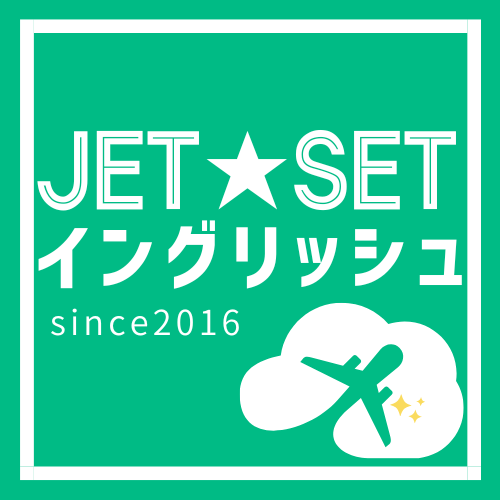📌現在販売中の独学用教材一覧
市販の教材では学べない「ネイティブが本当に使うリアルな表現200個超」を厳選し、具体的な例文(音源付き)・日本語訳と共に収録したのが、この「決定版!ネイティブ英語表現集」です。

🎯 英会話スクールでは絶対に教えてくれない。ネイティブ直結教材!
✈️ 海外赴任・出張前に時間がない人へ。
「英語はまあまあ話せるのに、ネイティブ同士の会話がわからない」——それ、教材のせいです。
この教材で、ナチュラルな英語を理解する耳と感覚が短期間で身につきます!
🎬 いつまでも字幕頼りのままでいいですか?
ネイティブが話す本物の英語表現を一気に習得できる、他に類を見ない教材がこれ!
🔍 掲載例
たとえば、“Don’t get me started.” というフレーズ、ご存じですか?
この表現は、下記の例1のように、良いことの場合にも使えますが、例2のように、良くない状況について使うことが多いです。
例1
A「旅行どうだった?」
B「Don’t get me started.」
(=その話は、(楽しくて)し始めたら止まらないからやめておくよ)
例2(こちらのほうが一般的)
A「仕事大変なんだって?」
B「Don’t get me started.」
(=もう愚痴が止まらないから…言わないでおくわ)
このような、「ネイティブはよく使っているけれど、意味がよくわからない」—— そんな表現を「聞いてわかる・自分でも使える」へ導きます!
派手さはない実直な教材ですが、中身には「へえ~、そういう意味なんだ!知らなかった!」😮がたくさん詰まっているはずです。そして、収録されているフレーズを頭に入れたうえで洋画やネイティブの会話を聴いてみると、「あ、わかる!」💡という瞬間を必ず感じていただけることと思います👍
本教材は独学用に200個余りのフレーズを収録したものですが、本教材を使用したZOOMでの対面オンライン講座もご用意がございます。

📘 教材の特徴
✅ ネイティブが実際の会話で使う表現を200個以上厳選(PDF教材、別途ネイティブによる音声ファイル付き)
✅ すべてのフレーズにイメージが湧きやすい具体的な例文付き
✅ 英語初心者でも理解しやすい日本語訳付き
💰 価格と購入方法
| プラン | 内容 | 価格 |
|---|---|---|
| 本教材(200個超の表現を収録) | ネイティブ英語表現集PDF(例文音源付き) | 2,980円 |
| 30表現を収録した教材+レッスン(1回) | Zoomで60分少人数制レッスン(30表現) | 8,800円 |
| 教材(200個超の表現)+全7回レッスン | 教材+全表現の少人数制レッスン | 39,800円(割引価格) |
🛒 ご購入はこちら

ご購入手続きが完了しましたら、ご登録のメールアドレス宛にPDF教材を送付させていただきます。
📩 ご質問・お問い合わせはお気軽にこちらのページ 又は admin@jetset-english.com までお寄せください。
📌現在開催・募集中のコース・イベント一覧
試験はできても映画やドラマの英語が聴き取れないのは何故?
※ご注意!どちらも音が出ます!
★リスニングに挑戦!①
聞き取れましたか?続いてもう1問。
★リスニングに挑戦!②
①の解答(オリジナル動画)
Can you tell me what he was talking about, like, right before he left?(彼が帰る直前に何を話していたか、教えてよ)
②の解答(動画はPlayphrase.me運営元の許諾を得て使用しています)
So what are you up to, Gracie?(で、グレーシー、最近どう?文脈によっては、これからどうするの?という意味の場合もあります。)
「文字で見たら理解できる英語だった。聴いたときになぜ理解できなかったのだろう?」と思った人へ。その原因は、生の英語の本当の音を知らないこと。これこそが、多くの日本人が抱えている問題なんです。私たちが学校で学んできた英語は、実はとても遅いので、ネイティブが普通の速さで話す場合に起こる英語特有の音の変化を、私たちは実はほとんど知らないのです。
上のようなネイティブの英語を聞き取れて、自分でも綺麗な発音で話せるようになりたいですか?そんなこと無理だって思いますか?確かに、これまでそのような方法はありませんでした。
しかし、JET SETイングリッシュでは、東大卒で英検1級、TOEIC985点であり現役の同時通訳者・翻訳者でもある、まさに「試験英語」も「生の英語」も知り尽くした、英語のプロ中のプロである代表が、ひとりひとりの弱点に合わせた徹底指導を行います。外国語を高いレベルで身に付けることは、もちろん簡単なことではありません。しかし、正しい方法で努力を続ければ、必ず実力は伸びていきます。一緒に英語の目標を達成して、人生を飛躍させましょう!
その他の情報発信
様々な媒体で英語情報を発信、イベントや勉強会も開催しています。ブログ(英会話サプリ)は「にほんブログ村」「人気ブログランキング」参加中。お陰様でおおむね一桁を維持しています(各記事下の応援クリックお願いします!)メルマガはまぐまぐ様より発行中。Xでも情報発信しています。
生徒さんの声
これまでに様々なコースで担当させていただいた生徒さんたちからのコメントです。
また、他のプラットフォームでの2か月間の評価ですが、こちらも平均4.8と嬉しい評価をいただいております。


内容がめちゃくちゃ濃くて、すぐに実践できるコツが満載で
大々大満足でした!!
すごく面白くてわかりやすかったし、エス先生が優しくて楽しい方で
またレッスン受けたくなりました!(40代女性・リスニング力アップ講座)

先生が明るく楽しい方なので、レッスン時間があっと言う間でした。役立つフレーズと共に、日本人は使いがちだけど実はちょっと失礼な英語など、いろいろ教えてもらいました。
長く英語をしていますが、初めて知る事いろいろありました!今日教えて貰ったことを覚えてレベルアップに繋げたいです。(30代男性・ネイティブ英会話200)

的確なアドバイスをいただき、自習する際の勉強方法や注意点もご提示いただきました。(私の書き方が少々堅いかもしれませんが、実際のセッションは和やかで、先生のお人柄もあって、楽しい時間でした。)
受講料をはるかに超える学びがあります。(50代男性・通訳基礎講座)

英検の2次の英語面接でうまく自分の意見を言えるかどうか不安でしたが、入室する時から最後の挨拶の言葉まで、具体的に何度も面接のシミュレーションをしてもらいました。試験官の人が先生の言った通りの挨拶をしてきたので驚きました!1回目の挑戦で無事2級に合格できました!やったー!って気持ちです!(中2女子・1年合格保証!英検2級合格コース)
無料体験レッスンご予約・お問い合わせ
無料体験レッスンのお申し込み、お問い合わせは下記ボタンよりご連絡ください。

